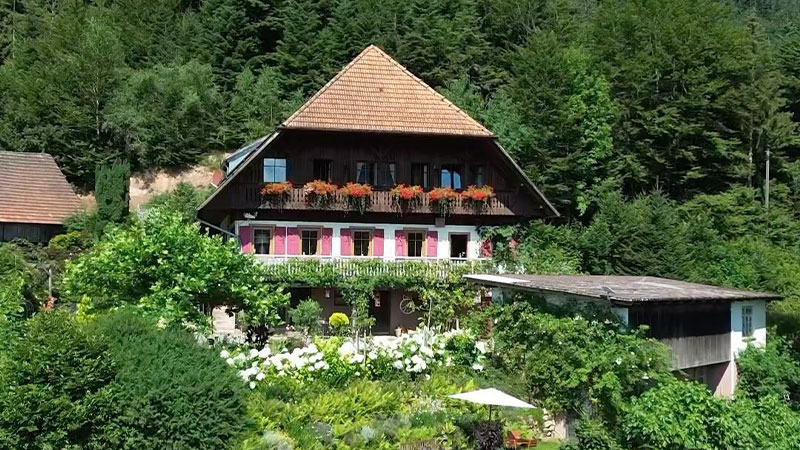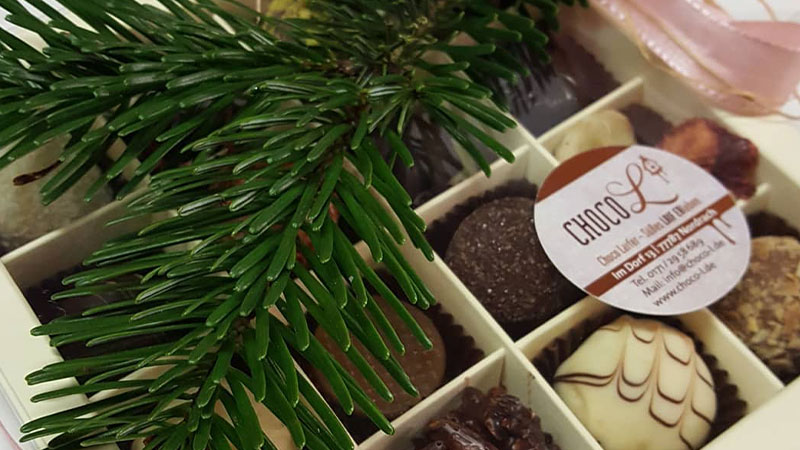In Germany’s storied Black Forest, the atmosphere is that of a Grimm fairytale, fog banks drifting through towering spruce trees on rolling hills. Here, in the village of Nordrach, you can hike the Obstbrennerweg, a roughly 12-mile distillery trail through the woods connecting almost a dozen skilled makers of schnapps. But a different kind of spirit lives here, as well — Nordrach is haunted.
The region’s most notable specter is the Moospfaff (literally “moss priest,” though Moos is also the name of this forested region), who has a few origin stories. Many people say he’s the shade of a centuries-old abbot whose dirty land dealings brought a valuable section of Nordrach under his control. The abbot swore before God and the court that he was standing on soil that belonged to him — true on a technicality, since he had slyly filled his shoes with dirt from his own property at Gengenbach Abbey before the hearing. This bad-faith oath won him the land but cost him his soul. Now, if you hear the cackle of this disgraced priest, it’s a sure sign you’ve gone astray in the forest, as the Moospfaff shifts the very earth beneath your feet. Each October, locals hit the trail to share spooky tales like this one at a number of events, from gatherings over coffee and cake to walks peppered by pauses for schnapps.
Hitting the Trail
Nordrach comes by its nickname of Obstbrennerdorf (meaning fruit distillery village) honestly: Many of the 2000-or-so residents maintain farming traditions dating back centuries, including a historical right to distill apples, pears, plums, and other fruit from their own orchards. Eleven such tiny distilleries comprise the Obstbrennerweg, serving sips of clear brandies and vibrant liqueurs you’ll never find elsewhere — these working farmers who distill on the side rarely distribute their spirits beyond Nordrach. Visiting and sampling from all of them in one day, however, could turn you around as surely as the Moospfaff, so it’s advisable to take the trail in chunks. German speakers can practice their understanding of the regional dialect by listening to ghost stories from talented storytellers like Michaela Neuberger, while English speakers can get the most out of the experience with a guide.
In October, the last of the roses and zinnias at the Moosbach Garden bloom brightly while the hydrangea, grasses, and trees trade their summer glow for the deep reds, browns, and purples of fall. Nestled in the hillside, this terraced Schwarzwälder Bauerngarten (Black Forest cottage garden) influenced by English gardens belongs to a newly renovated Black Forest house with a squared-off, steeply sloped roof characteristic of the style. Experienced hotelier Thomas Huber, a German from the Black Forest, runs the Moosbach Garten with his British husband, Andrew Huber-Froud. The bed and breakfast includes dinner, too, which features foraged ingredients like pickled forest mushrooms and homemade pate, prepared and served each night by the personable Huber.
Bottling the Moospfaff
It’s just three miles by foot through the woods and along ridges with stunning views from the Moosbach Garden, which sits directly on the Obstbrennerweg, to a cluster of three farm-distilleries surrounded by fields of ripe fruit trees and grazing livestock. Haashof owner Antonia Haas keeps a rare regional breed of mini cows, bakes aromatic breads, and makes some of the trail’s best liqueurs. Past the chicken coop, visitors can ring a large bell at the corner of the farmhouse to sample flavors from raspberry to quince, as well as Haas’s take on Moospfaff liqueur, a Nordrach specialty that showcases wild blueberry as a main ingredient.

Around the corner, Schwarzhof Ernsbach has a distiller’s hut, where you can help yourself to samples on the honor system, and a tasting room where owners Herbert and Trudel Schwarz, dressed in traditional garb, greet visitors. The animated couple use their fruit to bake seasonally appropriate Apfelbrot (apple bread) and produce a staggering array of sought-after spirits, from pristine classics like Zwetschgenbrand (plum brandy) to a dry gin with local juniper that can be added to tonic for a simple, refreshing mixed drink that evokes the surrounding evergreens.

Farmer, potter, storyteller, and distiller Angela Boschert leads hikes in October during which she shares how people here lived in times past. At her farm, Boschert Hof, she crafts Moospfaff figurines and tableware on which she serves traditional snacks after her hikes. She makes another take on the blueberry-based Moospfaff liqueur and a wide variety of clear spirits redolent of beets, pears, or even Jerusalem artichoke. Also known as sunchoke, the earthy root is popular with local distillers, who call it Topinambur. Most Germans only sip these types of schnapps straight as digestives; the closest place to try them in cocktails is in the nearby city of Offenburg, at bars such as Schoellmanns and Haus Zauberflöte from pioneering Willi Schoellmann.
On the main street through town, chocolatier Egbert Laifer has found clever ways to celebrate the season and the local ghost. Eleven years ago, at his shop Choco L, he created an exquisite truffle called the Moospfaffkugel in honor of the legendary abbot: A creamy filling of honey, nougat, and Schwarzhof’s walnut liqueur is enrobed in a whole-milk ganache and rolled in pistachio crumbles for a mossy appearance and delightful crunch. Most of Laifer’s candies contain spirits from local distillers. Laifer also runs Cafe s’Blaue Hus, a cheerful, bright-blue cafe in the same building where the signature is a Moospfafftorte, a three-layer cake topped by and flavored similarly to his Moospfaffkugel. His Moospfaff-inspired treats accompany many of the special events in October.
Given the seasonal and often informal nature of these experiences, no two visits to the Obstbrennerweg will ever be exactly the same. Despite how much unique charm it possesses, though, Nordrach is still a fairly well-kept secret beyond the region — perhaps the Moospfaff really has been playing tricks with the terrain.
